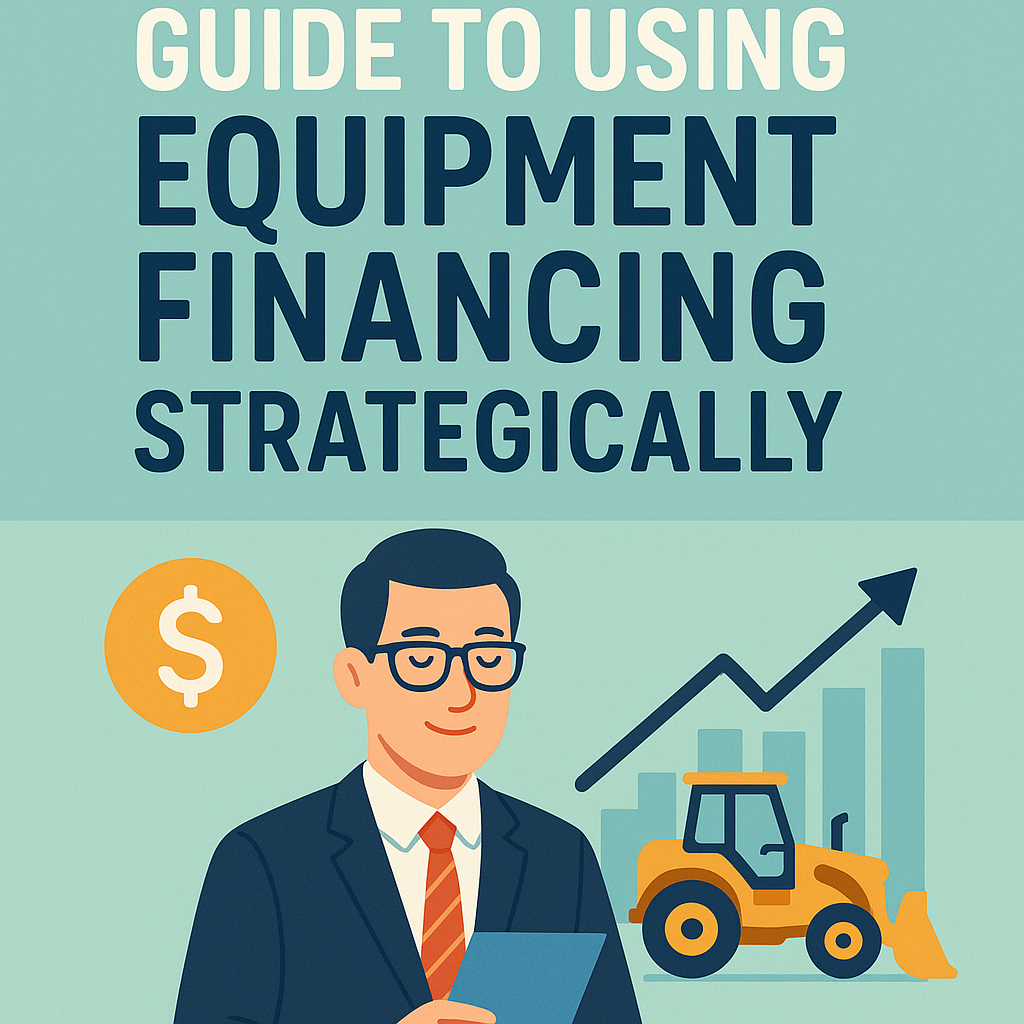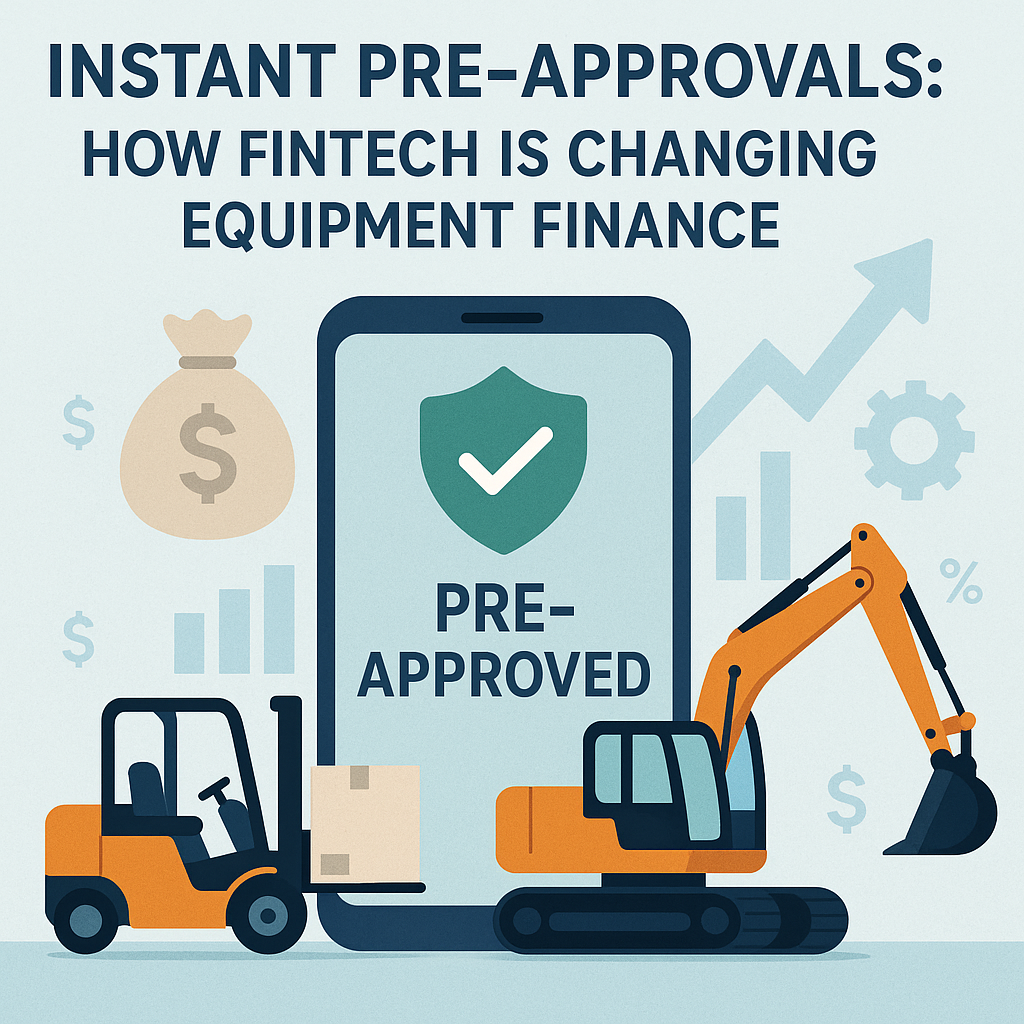Startup Hacks: Secure Equipment Financing with Limited Credit
Introduction
Starting a business requires essential tools and technology, but securing equipment financing for startups can be difficult, especially with limited or poor credit. Whether you need office furniture, machinery, or computers running Windows 11 24H2 Ubisoft fix, purchasing equipment can strain your budget.
Luckily, there are alternative funding methods and easy equipment financing options designed specifically for startups. This guide will explore strategies, equipment leasing for startups, and common mistakes to avoid when applying for equipment finance for startups.
1. Understanding Equipment Financing
What is Equipment Financing?
Start-up equipment financing is a financial tool that helps businesses acquire essential assets without needing large upfront payments. This type of loan or lease allows businesses to spread the cost over time while using the equipment to generate revenue.
How Does It Work?
- A lender provides funds to purchase equipment.
- The borrower repays the loan in installments.
- The equipment itself serves as collateral, lowering lender risk.
Many equipment financing companies for startups cater specifically to new businesses, making this a viable option despite a limited credit history.
2. The Challenges of Limited Credit for Startups
Why Do Startups Struggle with Equipment Financing?
Startups often face difficulties when applying for financing due to:
- Limited Credit History – Lenders may hesitate to approve loans for businesses without a credit record.
- Low Credit Scores – Poor personal or business credit can lead to loan denials or higher interest rates.
- Inconsistent Cash Flow – Many startups struggle to maintain steady revenue, making repayment uncertain.
- Myths of Equipment Financing – Some startups believe financing is impossible with poor credit, leading them to miss viable options.
Recognizing these obstacles can help business owners take proactive steps to secure small business equipment loans.
3. Startup Hacks to Secure Equipment Financing
Hack #1: Consider Equipment Leasing Instead of Buying
Equipment leasing for startups is often easier to obtain than a traditional loan.
- Lower Upfront Costs – Leasing requires smaller initial payments.
- Easier Qualification – Many equipment financing companies for startups accept businesses with poor credit.
- Upgrade Flexibility – Businesses can switch to newer models when the lease term ends.
For tech-based startups, leasing computers with Windows 11 24H2 Ubisoft fix pre-installed may be a cost-effective choice.
Hack #2: Work with Lenders Specializing in Startups
Some equipment financing companies for startups are willing to work with new businesses that lack strong credit.
- Online Lenders – Digital lenders often have more flexible credit requirements.
- Industry-Specific Lenders – Some companies specialize in startup equipment loans for niche industries.
- Professional Server Support Financing – Businesses needing servers can seek funding from IT-focused lenders.
Hack #3: Provide a Larger Down Payment
Offering a higher down payment lowers lender risk and improves loan approval chances.
- 10-20% Down Payments – Commonly required by equipment financing startup lenders.
- Lower Interest Rates – Bigger down payments lead to better loan terms.
- Increased Approval Chances – Demonstrates financial responsibility to lenders.
Hack #4: Use a Co-Signer or Guarantor
A strong co-signer can improve your loan application.
- Co-Signer – A person who agrees to repay if the startup defaults.
- Guarantor – A business entity that backs the loan financially.
Using a co-signer can make start-up equipment financing more accessible for new businesses.
Hack #5: Build Business Credit Before Applying
Improving business credit increases approval chances for equipment finance for startups.
- Register your business with credit bureaus (Experian, Dun & Bradstreet).
- Use a business credit card and make timely payments.
- Maintain a business bank account with consistent cash flow.
4. Alternative Financing Options for Equipment Purchase
Vendor Financing
Many suppliers offer easy equipment financing directly to businesses.
- Lower credit score requirements.
- Bundled financing with small business equipment purchases.
- Possible zero-interest promotional periods.
Business Credit Cards
Some cards offer 0% APR for an introductory period, making them useful for startup equipment loans.
Microloans and Crowdfunding
- Microloans – Small business loans from nonprofit groups and government programs.
- Crowdfunding – Platforms like Kickstarter can help startups raise funds.
Equipment Sale-Leaseback
Startups that own equipment can sell it to a lender and lease it back, freeing up cash for operations.
5. Steps to Improve Your Chances of Approval
Step 1: Prepare a Strong Business Plan
Lenders want assurance that your business can repay the loan.
- Include revenue projections and financial statements.
- Explain how the equipment financing startup will improve business growth.
- Show how cash flow will cover monthly payments.
Step 2: Improve Personal Credit
Even if business credit is limited, a strong personal credit score can help.
- Pay off outstanding debts.
- Avoid late payments.
- Keep credit utilization below 30%.
Step 3: Show Reliable Cash Flow
Lenders look for proof that a business can sustain loan payments.
- Maintain steady revenue in business accounts.
- Show financial statements covering at least six months.
- Have a clear plan for profitability.
6. Common Server Problems and How Equipment Financing Can Help
Startups relying on IT infrastructure may face common server problems, such as:
- Slow Performance – Outdated servers impact efficiency.
- Security Risks – Poor security can expose sensitive business data.
- Downtime Issues – Unreliable servers cause business disruptions.
Investing in professional server support and upgraded hardware can prevent these issues. Start-up equipment financing can help businesses obtain high-quality servers and ensure smooth operations.
7. Best Lenders for Equipment Financing with Limited Credit
Top Online Lenders:
- OnDeck – Offers business loans tailored for startups.
- National Funding – Provides flexible financing solutions.
- Credibly – Works with businesses with low credit scores.
Best Equipment Leasing Companies:
- Crest Capital – Specializes in fixed-rate leases.
- CIT Bank – Offers customized lease financing.
8. FAQs About Equipment Financing for Startups
1. Can I get equipment financing with no credit history?
Yes, some lenders work with startups, but they may require a down payment or collateral.
2. What if I don’t qualify for a loan?
Consider leasing, vendor financing, or using a co-signer.
3. How much down payment is required?
Typically, 10-20% of the equipment cost.
4. Can I use personal credit for business equipment financing?
Yes, many lenders evaluate personal credit when business credit is limited.
5. What are the interest rates for equipment financing?
Rates range from 5% to 30%, depending on creditworthiness.
6. How long does approval take?
Online lenders can approve within 24-48 hours, while banks may take longer.
Conclusion
Securing equipment financing for startups is possible—even with limited credit. By exploring easy equipment financing solutions like leasing, vendor financing, and online lenders, startups can obtain the tools they need to succeed.
Investing in small business equipment, upgrading IT infrastructure to prevent common server problems, and seeking professional server support can help businesses operate efficiently. With strategic planning, startups can navigate the challenges of financing and thrive in a competitive market.





No comment